Movie Review – Horizon: An American Saga – Chapter 1
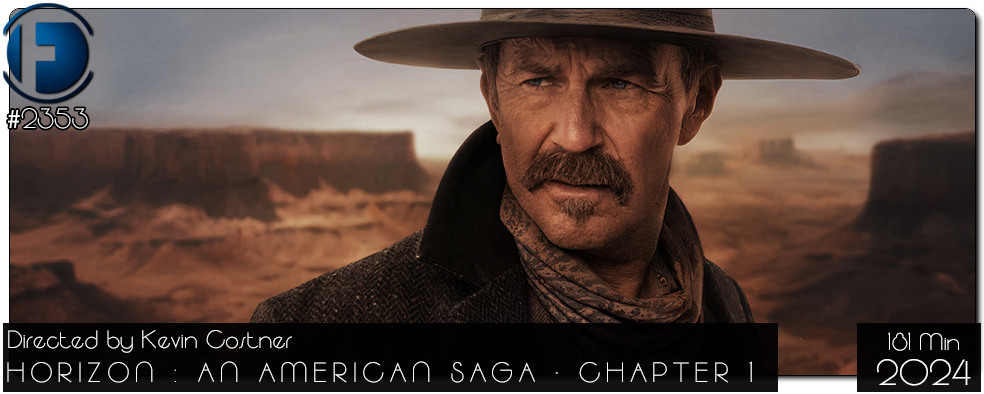
Principal Cast : Kevin Costner, Sienna Miller, Sam Worthington, Giovanni Ribisi, Michael Rooker, Danny Huston, Jena Malone, Michael Angarano, Abbey Lee, Jamie Campbell Bower, Jon Beavers, Owen Crow Shoe, Tatanka Means, Luke Wilson, Ella Hunt, Tom Payne, Georgia MacPhail, Will Patton, Isabelle Fuhrman, Jeff Fahey, Gregory Cruz, Scott Haze, Angus Macfadyen, Etienne Kellici, Charles Halford, Dale Dickey, James Russo, Douglas Smith.
Synopsis: In 1860s Arizona, hundreds of lives converge in Horizon Valley as Apache warriors, European settlers, and the US Army struggle to resolve bitter life-threatening conflicts.
********
Kevin Costner just loves America. I mean, he fucking loves America. The man has given us some of the most epic Americana films in modern cinema – from Wyatt Earp to Field of Dreams, to his apocryphal Dances With Wolves and Open Range – and the less said about The Postman the better; Costner’s fascination with American iconography and foundational history is something to be admired, if not celebrated. He has by now also earned the opportunity to deliver us Horizon: An American Saga, a sprawling multi-film story straddling perhaps the most iconic moments in the country’s history: the settler expansion into the west, the conquering of the native tribes, and the onset of civil war. Costner abruptly quite his starring role in popular television show Yellowstone to sink his accumulated wealth into what must be the most muddled big-screen vanity project in decades, if Chapter 1 of this mooted three-or-four part franchise is to be expected, and while the end result is both fascinating and aggravating, I cannot fault the man for taking an enormous swing for the fences, critics be damned.
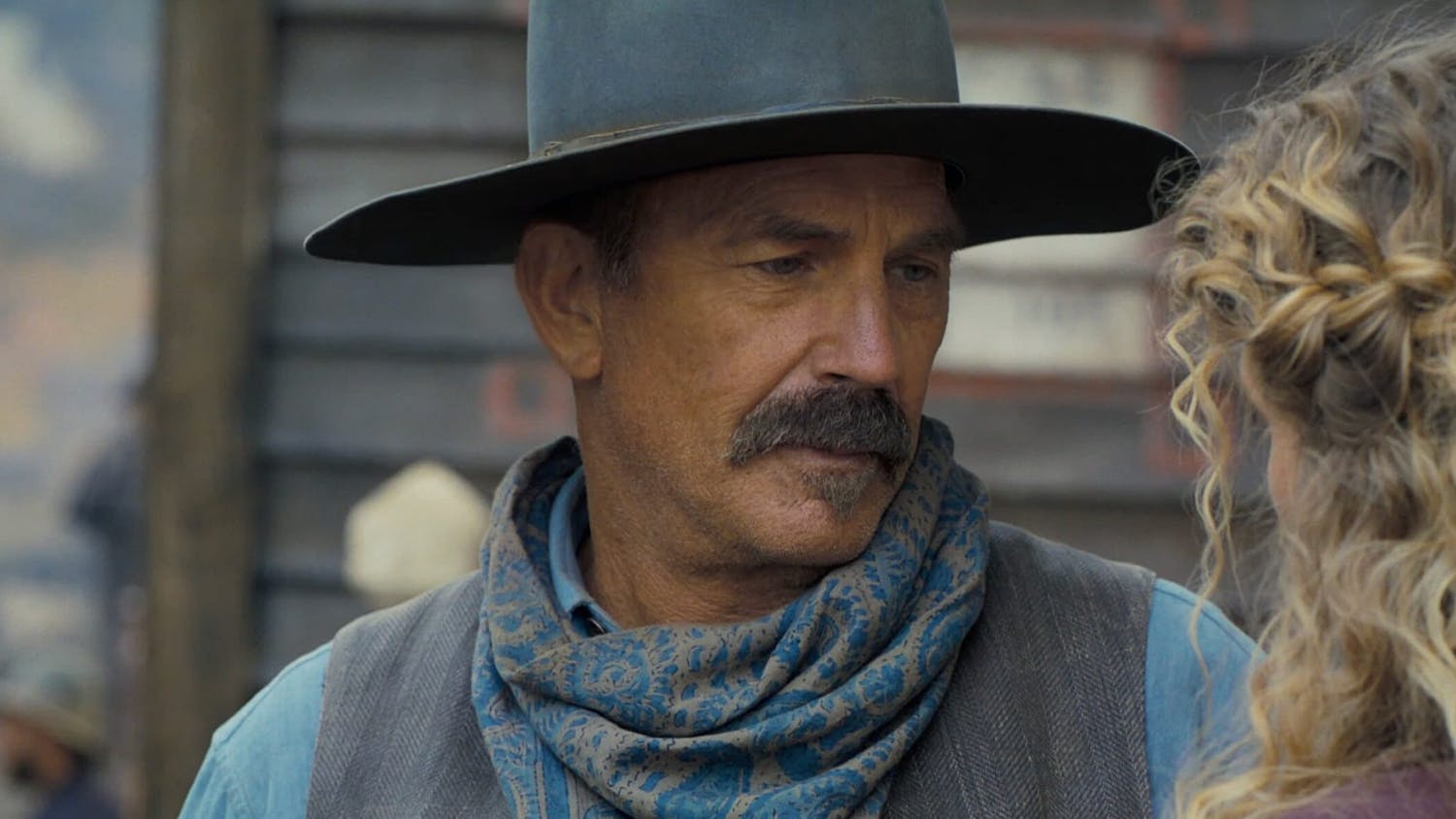
Horizon is a widescreen epic boasting a number of storylines, almost none of them central. The one involving Costner – who also writes and directs this film – sees him play Hayes Ellison, a traveller and mysterious stranger who assists a prostitute, Marigold (Abbey Lee) escape retribution at the hands of the cruel Sykes family when she absconds with the young son of a woman who killed one of their member in another state. We also meet Frances Kittredge (Sienna Miller) and her daughter Elizabeth (Georgie MacPhail), the only survivors of a deadly Indian attack on the village of Horizon whereupon the settlement is utterly razed; the Kittredge’s are seconded to the nearby US Army camp run by Colonel Houghton (Danny Huston), Sgt Major Thomas Riordan (Michael Rooker), and First Lt Trent Gephard (Sam Worthington), whereupon the mother gradually forms an attachment to the young soldier. Meanwhile, a group of settlers led by Matthew Van Weyden (Luke Wilson) are making headway across country to Horizon, although encounter a number of incidents with the heat, inter-camp antagonism and a general malaise from travel. A number of other subplot involve a posse tracking the Indians that razed Horizon, a young, uppity married couple forming part of the settler troupe, and several native American tribes determining how to combat the threat of the white man from usurping their land.
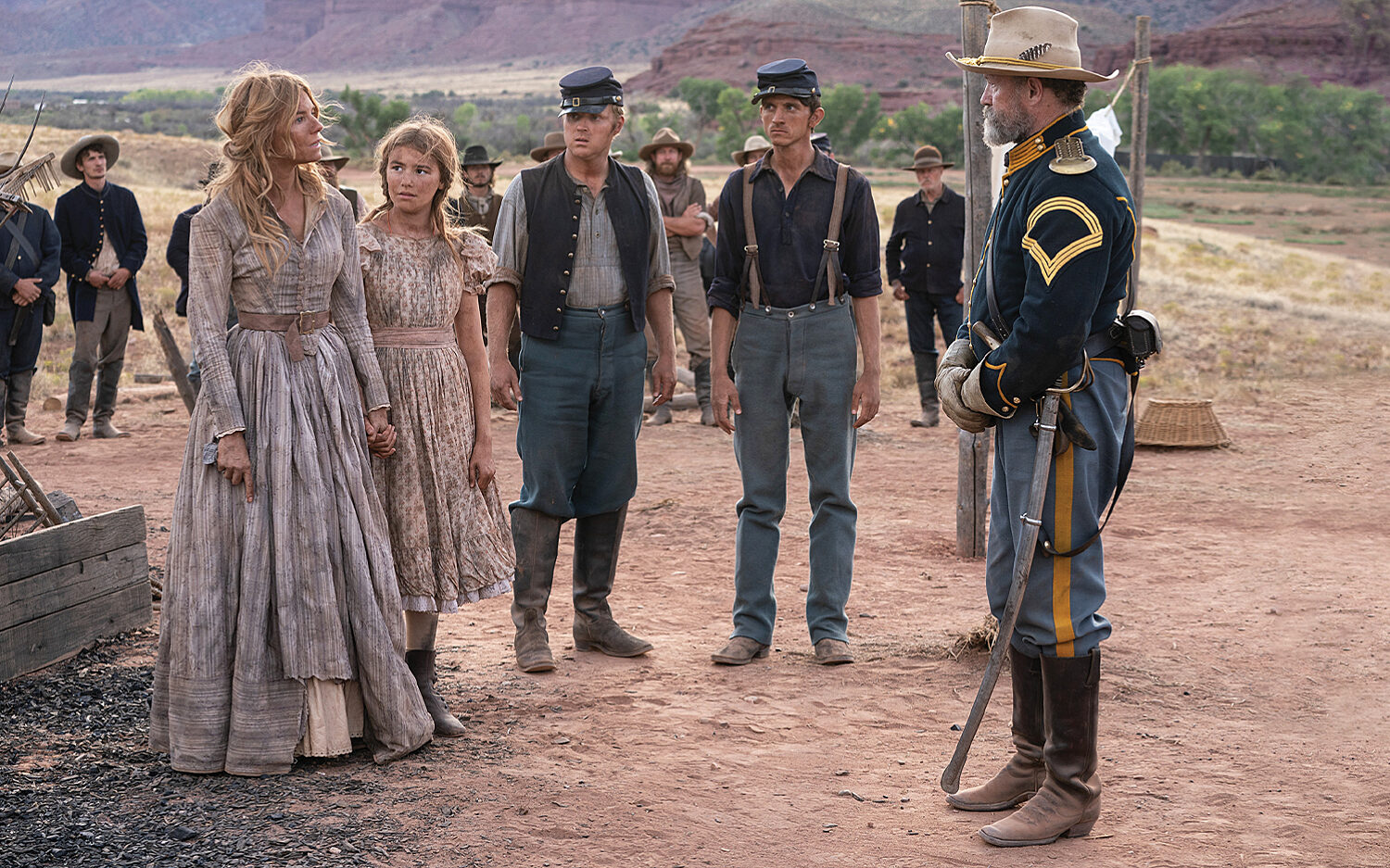
Horizon is both a complete mess and the intriguing start of a wholly original Western franchise, something Hollywood hasn’t seen for a generation. Westerns are few and far between in mainstream Hollywood – mainly because they make no money – and it might come as no surprise that with Chapter 1 eking out middling critical reviews in America, box office was never going to hit home here. The sad truth is that Chapter 2’s imminent cinematic release was pulled not long after Chapter 1 debuted on the big screen, and that’s a shame because despite the convoluted, clinical manner in which Costner depicts the blood-soaked Old West of a formative United States in the mid-1800’s, there’s an admirable kitchen-sink approach to this widescreen swing for the fences that draws one in. Clocking in at a bladder-testing three hours, Chapter 1 of Costner’s cliched mishmash will test the mettle of almost all viewers save those who appreciate allowing both story and characters to breathe a little, and even in saying that this film moves along at quite the brisk pace. The three hours seems to whiz right by. There are so many characters, so many subplots to wrangle here, with competing levels of interest in them all, that Chapter 1 feels almost like a prologue to some Infinity War-style blowout around about Chapter 4 or 5 to come (if they’re ever made; at the time of writing this review, Chapter 3 has started shooting, and Chapter 4 is in pre-production only, albeit with none of the rest of this franchise having a platform to drop onto at this point) and the confusing, often incomprehensible editorial choices make for tough going initially.
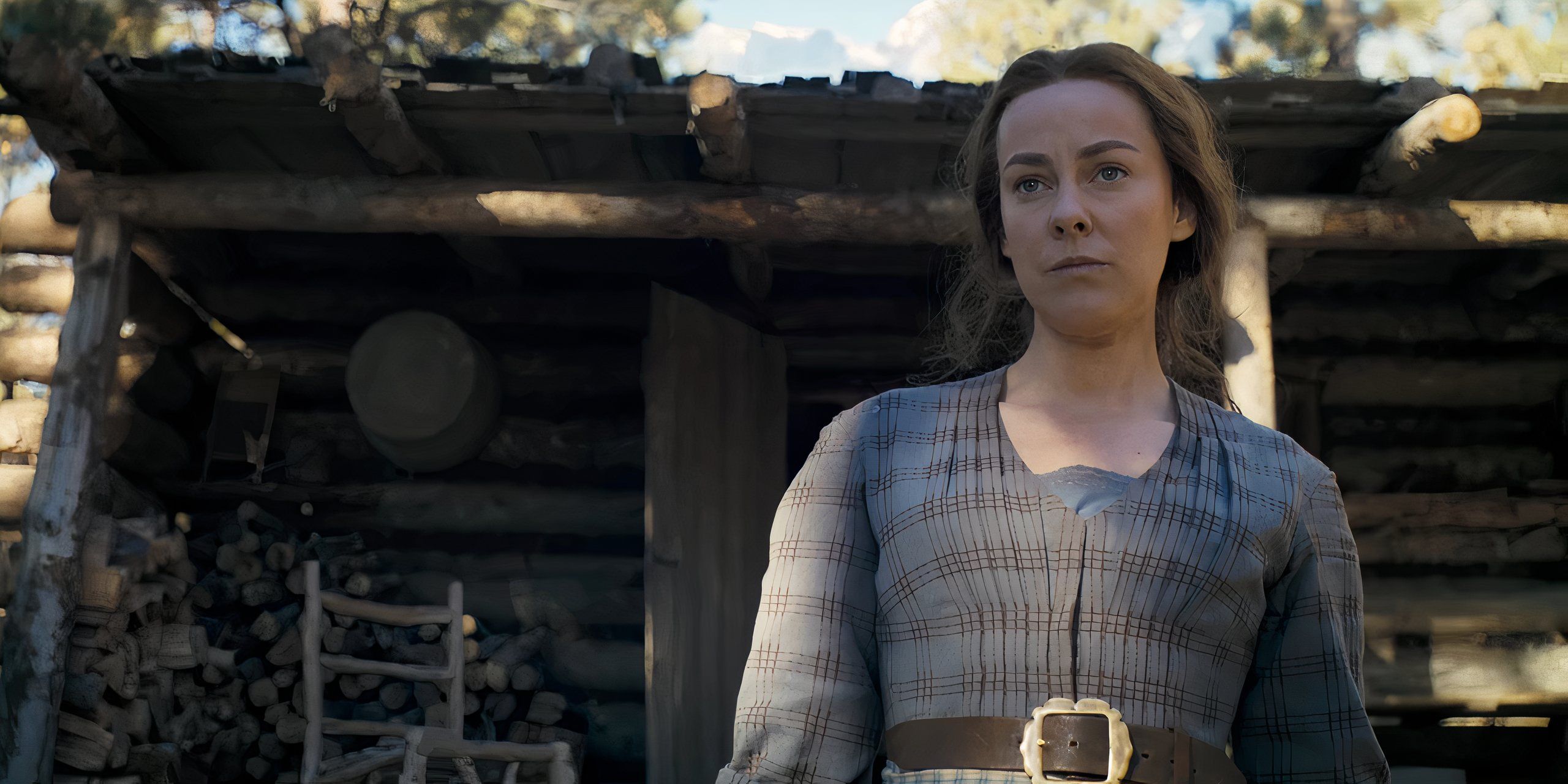
Part of the problem is that Chapter 1 has so many story threads to encompass it tends to get lost in its own mess. Costner and his editor, Miklos Wright, really struggle to make each arc compelling from one moment to the next: just when you think you’ve got a handle on one story, we’re off across the country to characters we don’t know and can’t work out if they’re bad, good or indifferent, and with such violent encounters portrayed in the opening act you’re thinking this might be Costner’s Game of Thrones had the shit seasons been at the beginning. The cast are all squarely on point here, slipping into well worn archetypes of the time – the stoic solder, the waifish young women, the hard-bitten mercenaries and hunters, the bizarrely modern-clothed Native Americans (I’m no expert on Native American culture, but here they’re almost all wearing modern 1800’s clothing instead of the more cliched warrior outfits, which struck me as somewhat incongruous) and Costner’s fits-like-a-glove Silent Mysterious Stranger With A Past; Costner’s story isn’t particularly inventive or new, and I admit most of the characters fit easily into two dimensional tropes we’ve seen countless times before in this genre. The dialogue is largely formulaic, and the writing leans into pompous and fatuous in equal measure, although the solid cast give it their all to inject realism and nuance to their parts. The male characters are far stronger than the female ones here – perhaps a byproduct of Costner’s tin-ear for feminine dialogue and understanding – and aside from Sienna Miller none of the actresses, including an underused and high-pitched Jena Malone, a wooden Abbey Lee, and poor Ella Hunt, are given much to do aside from show some skin, wail about how hard life is, or slut around in keeping with the overall misogyny of the era.
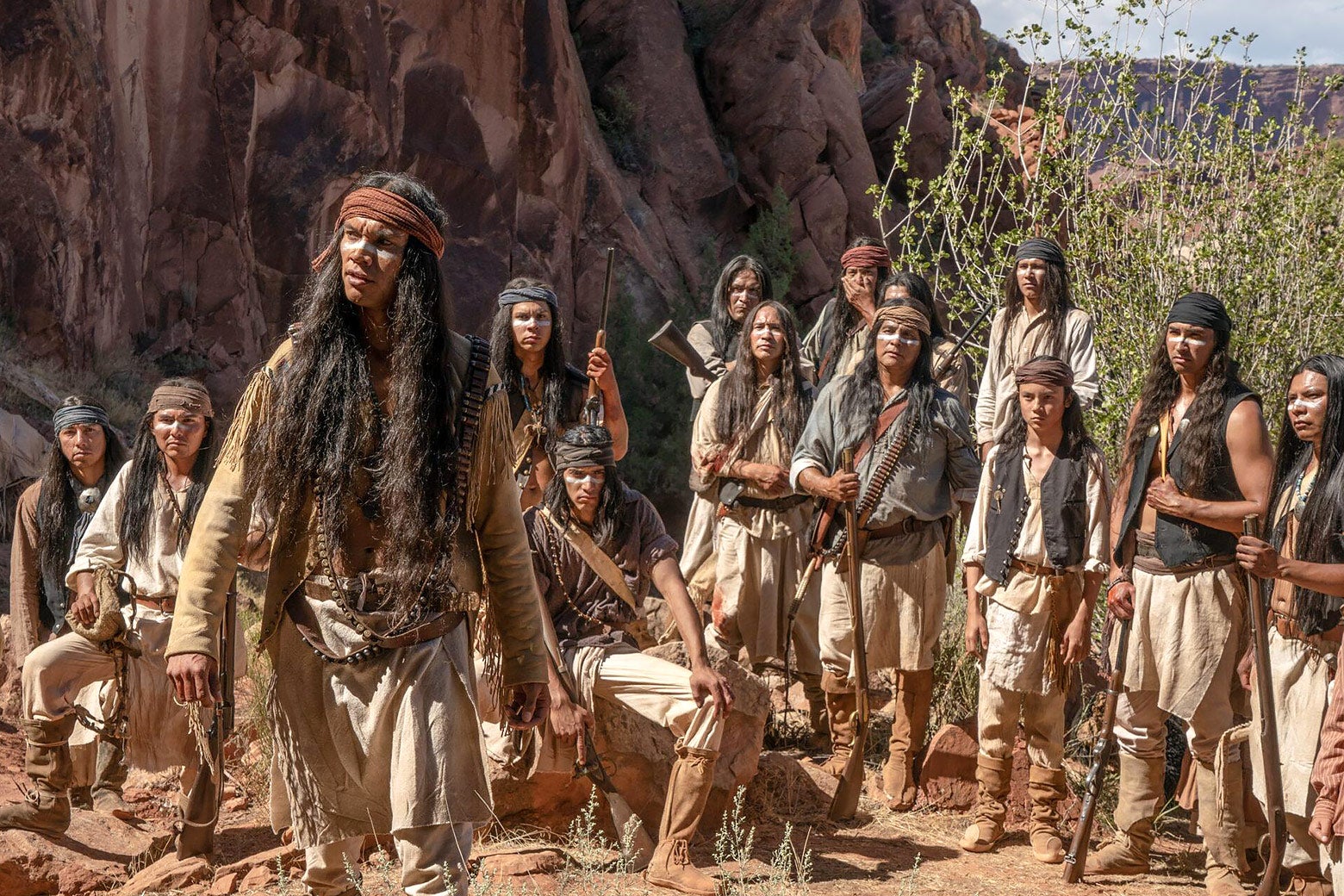
Now, I’d also have expected that if Costner was going to really showcase how America was birthed from the dust and blood of those who explored it, he might not shy away from the violence. To some degree, he never flinches, particularly with the brutality of the various Indian attacks and a showstopping turn by Jon Beavers as an odious Sykes brother who bothers Costner’s Hayes Ellison just a little too much. But there’s a clinical, antiseptic avoidance of the truly brutal life of the American West – a number of death occur off-screen or in shadow, intimated rather than show explicitly, and you get the sense that some of the more graphic occurrences within the film might have met with some editorial expediency to meet with cinematic release guidelines. This is a very hard PG-13 film, indeed, and it feels somehow like Costner was holding back. Generally, however, his direction of crucial sequences is terrific. A lengthy Indian attack on the primordial settlement of Horizon is wanton and thunderous, the bodycount higher than I honestly expected, and quite emotional. The man can make the wide open vistas of the San Pedro Valley looks spectacular (no thanks to DP J Michael Muro, who gives the film a real modern-dreamlike quality that’s unshakeably 2024 and yet resolutely Leone-esque in its grittiness) and reminds us all the time just how harsh life was for these settlers and first inhabitants in the west of the country, a natural tension of life on the land mixed with the explicit fear of marauders, mercenaries and general ne’er-do-wells threatening to do violence at the drop of a hat. I’m not certain Costner doesn’t ape the aforementioned Sergio Leone to an inch of his life in several sequences involving the posse running down an Indian tribe, ramping up the racial vilification to a fingernail-shredding degree at times, but these moments are undercut by far more prosaic sequences of general settler life.
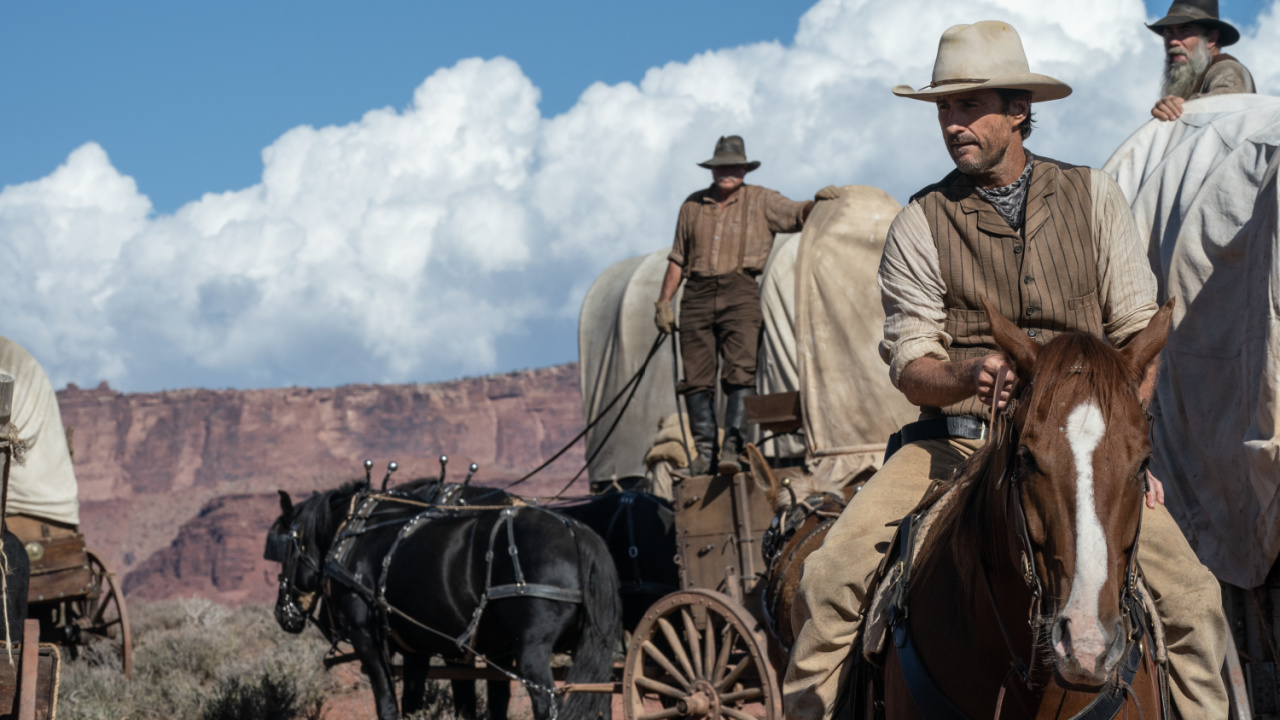
In spite of my criticisms, however, I did admire Costner and his team for attempting to stage an opus for the ages, no matter how misguided. There’s elements of Horizon as a project that I’m fascinated by, and I really am keen to see where this series of films ends up; although Chapter 1 fails to ignite any of its characters with that sense of “oh I can’t wait to see what happens to them” enjoyment, the overall premise of a multi-pronged ensemble of for-now un-associated characters and the continual exposition of Horizon township as some mythical national crux point location – particularly in a Western – is a fascinating thing to witness in this modern age of cinematic universes. Costner’s own Horizon Cinematic Universe might just crash and burn, it might fail to deliver, but for the fact that the actor/writer/director has thrown his all into bringing this to the screen is at least worthy of the benefit of the doubt. At least for now. Horizon: An American Saga – Chapter 1 might be a hot mess, and offer little by way of compelling characters that aren’t broadly drawn archetypes, but for what it hopes to achieve in terms of mythologizing the United States heartbeat I’m all in to see what happens next.
